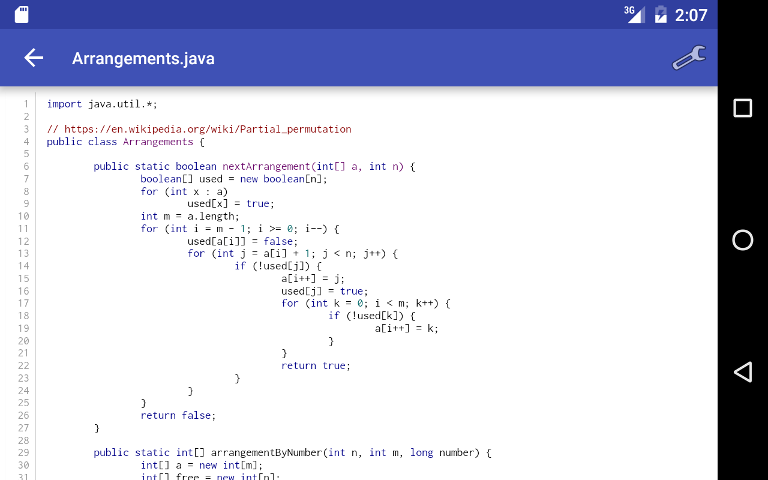Java Algorithms
Many people know the excellent library of Java algorithms by indy256 — https://github.com/indy256/codelibrary/tree/master/java/src. At the moment, there are 192 algorithms files (some files are variations of the same algorithm). It helps me a lot! For other languages I have not found such an extensive library.
I exported the library in the Android application. With it you can quickly look algorithms. You can also select one of 73 syntax highlighting styles, one of 9 fonts and application style — Default, White or Black. You can change the text size — use two fingers and a double-tap of the screen. There is also a custom SearchView, and descriptions of algorithms.

Google Play. Screenshots. More screenshots at Google Play.
The author of the library indy256 liked the application. I think that you will like it too :)






























